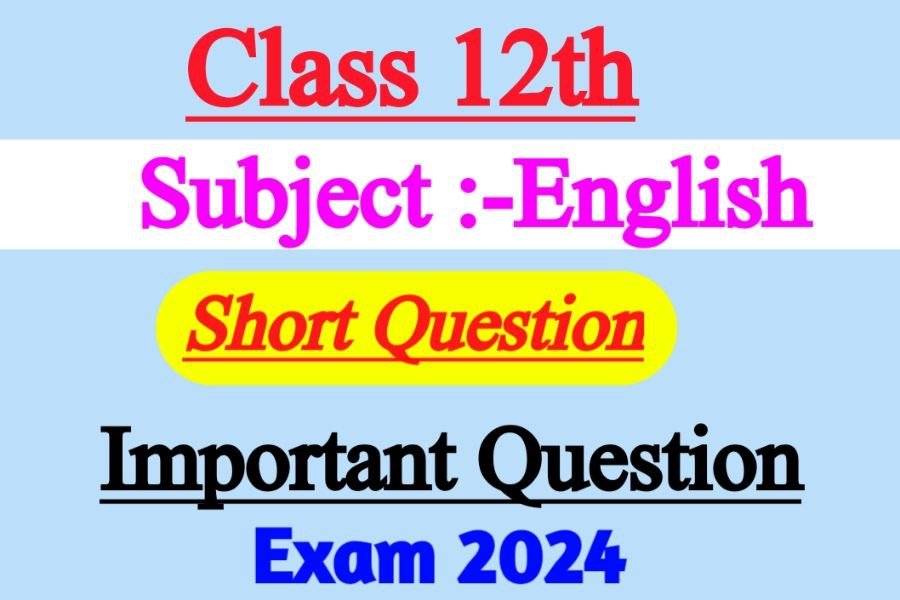Indian Civilization and Culture Short Question Exam 2024: भारतीय सभ्यता संस्कृति से परीक्षा में पूछे जाने वाले महत्वपूर्ण शॉर्ट प्रश्न यहां से एक बार जरूर पढ़े, Sarkari Board
Indian Civilization and Culture Short Question Exam 2024:
Q.1. What is civilization in the real sense of the term? [Sc. & Com. 20204, 2018A)
Ans. Civilization in real sense of term, consists not in multiplication but in the deliberate and voluntary restriction on wants. This alone increases and promotes contentment and real happiness and capacity for service.
Q.2. Why did our ancestors dissuade us from luxuries and pleasures? [Sc. & Com. 2019AJ
Ans. Our ancestors observed that a man is not necesarily happy because he is rich or a man who is poor is unhappy. The rich are often seen to be unhappy and the poor to be happy. Observing all this our ancestors dissuaded us from luxuries and pleasures. They were perfectly right in their observance and action.
Q. 3. What was the great lesson that India had to teach the West? [Sc. & Com. 2019A)
Ans. The great lesson that India has to teach the West, was humanity. It is our culture and tradition as well.
Q.4. What is the difference between the East and West in the matters of mother-child relationship [Arts 2018A)
Ans. In the west it is regarded as outrageous that a woman would lose her own name and become known as the mother of her first-born. In the East the relationship between mother and child is more important than the relationship between husband and wife.
Q.5. Why is he thankful to modern civilization?
Ans. He is no hater of the west. He is thankful to the west for many a thing that he has learnt from Western literature.
Q. 6. What other civilizations does he refer to while highlighting the vitality of Indian civilization?
Ans. He refers to the civilizations of Rome, Greece, Japan and China, which are now destroyed or westernized. Indian civilizatio is still alive.
Q. 7. How did our ancestors view large cities? Why were they satisfied with small villages?
Ans. They viewed large cities as snares and useless encumbrances, having gangs of theives, robbers and prostitutes Their village fulfilled all their needs. So they were satisfied witzi small villages.
Q.8. How did our ancestors enjoy true Home Rule?
Ans. They disliked courts and lawyers. They settled their disputes without going to courts. They needed no intervention by the police or courts. In this way they enjoyed true Home Rule.
Q.9. What does Gandhijee prefer to materialism?
Ans. Gandhiji is dead against blind imitation of western civilization that is based on naked materialism. He prefers the development of moral being, restriction on wants and contentment with a firm belief in God.
2. Bharat is My Home
Q.1. What is Dr. Zakir Hussain’s concept of education? (Sc. & Com. 20204)
Ans. Zakir Hussain put special emphasis on moral rules and gave them the highest place in his value system. Through education. he wanted to prepare men of character, to help them develop free, moral personalities.
Q. 2. Why does Dr. Zakir Hussain call India “The young state of an ancient people’? [Sc. & Com. 20194; Arts 2020A)
Ans. Dr. Zakir Hussain called India “The Young State of an ancient people’. It is so because our past is not dead and static. It is alive and dynamic. Our ancient culture is alive and we can make our future on the basis of our ancient people’s blessings.
Q. 3. Why is Zakhir Hussian overwhelmed? [Sc. & Com. 2018A)
Ans. He is overwhelmed by the trust his people have placed in him by electing him to the highest office in the land.
Q. 4. On what occasion did Zakir Hussain deliver this speech?
Ans. He delivered this speech in 1967 after taking the Oath as president. This is his first speech as the President of India.
Q.5. What are the two aspects of work that he talks about?
Ans. The two aspects of work that he talks about are individual and social. We should work for ourseves as well as for our society. The individual cannot him to the highest office in the land.
Q. 6. What does he feel while assuming the charge of presidency?
Ans. He feels greatly obliged to the people of the country and enters this office in a spirit of prayful humility and total dedication.
Q. 7. What does he say about this young state?
Ans. He says that India is a young state of an ancient people who, through the long millenia and through co-operation of diverse ethnic elements, have striven to realise timeless absolute values in their own peculiar way.
Q.8. The past is not dead and static’ who says this and why?
Ans. It is Dr. Zakir Hussain who says that the past is not dead and static. In his view, past is alive and dynamic. It determines the quality of our present and the prospects of our future. India is a new state of ancient people. He says so to highlight the importance of Indian culture based on the principle of unity amidst diversity.

